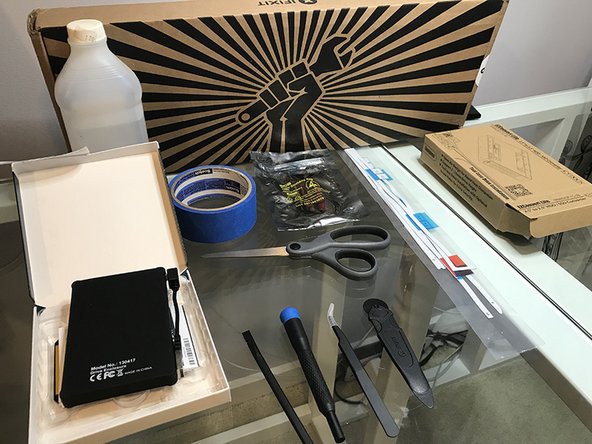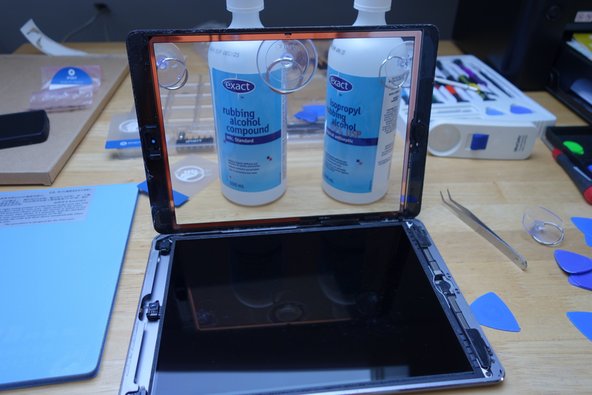As the Right to Repair movement reaches an all-time fever pitch, tech manufacturers are focusing on one big lie in order to halt our progress: That you can’t trust independent repair shops, only the manufacturers themselves. This argument is a pile of manure.
Corporate lobbyists paint a bleak picture of third-party shops, arguing that these places use low-quality parts, install them improperly, and grift their customers. This couldn’t be further from the truth. In reality, most independent repair shops are no different than your friendly, local auto mechanic whom you recommend to your friends and family any chance you get. And many of them are fully capable of performing the same repairs that manufacturers do—plus some repairs the manufacturers won’t do.
Independent Shops Are Often as Good as the Manufacturers—If Not Better
Manufacturers constantly tell us that those who are properly trained and authorized by said manufacturers are the only ones who should be repairing our devices. But more often than not, independent repair shops are just as “properly trained” as anyone to fix your broken stuff.
Many independent repair technicians have gone through the same training and certification processes that manufacturers require out of their own technicians. It’s also not uncommon for independent repair shops to have former technicians from big manufacturers on staff, especially from companies like Apple, HP, Microsoft, and others. We even have our own MasterTech certification that independent repair technicians can earn to prove their proficiency.
What’s more, many common repairs don’t require extensive expertise. You don’t need years and years of training to replace a smartphone battery or a cracked screen. In fact, we constantly receive success stories from folks all over the world who have fixed their own device without any former training or knowledge. Obviously, you want your professional repair technician to be competent, but we’re just saying you don’t need a master’s degree in engineering and a handful of certifications to be good at fixing stuff.

Gabriel, who has been in the industry since 2002 and is currently the Operations Manager at The Computer Cellar in Durham, NC, can attest to this. “We’ve met teenagers that have walked into the shop and started discussing computers and technology with us and we’ve said to each other, ‘that kid could do our job,’” he says.
This is true even of those more complex repairs the manufacturers won’t tackle. “One of our ex-techs joined us at 19 with only hobbyist experience,” Gabriel says. “When he left, he was teaching himself board-level repairs. He’s now, at 22, pulling a better salary than me, plus some stellar benefits, working for a university.”
“Board-level” repairs involve fixing the circuit board itself by replacing individual components, instead of replacing the entire expensive circuit board. These advanced repairs require microsoldering skills, specialized equipment, and a very steady hand.
So what about those repair parts that manufacturers keep harping on? Well, your local shop has a reputation to uphold. It’s in their interest to use a reliable part that meets your high expectations. While it can be difficult (or impossible) to source genuine OEM parts (most cell phone manufacturers, with the notable exception of Motorola, don’t sell their parts to anyone), it’s not too difficult to find aftermarket components that come from the same suppliers that manufacturers use.
“As surprising at it seems, you can buy an original Apple LCD,” says Alexandre Isaac of Phone Repair Toulouse in France. “You need the right contact in China. They usually buy it directly from the factory, as Apple can’t really control perfectly these millions of screens, so Foxconn still sells a few on the side.”
Furthermore, a lot of shops will harvest the good parts out of other broken devices in order to get that coveted OEM logo. “When appropriately refurbished with good tools, these are great and are the best solution,” says Isaac.
In fact, we know that a lot of repair shops use high-quality parts, because in some cases, we’re the ones that supply those parts! Through our iFixit Pro wholesale parts program, we partner with independent repair shops and offer our parts, tools, and support so that those repair shops can offer their customers a great experience. All of our parts are sourced from reputable, trustworthy suppliers, and we do extensive in-house testing on everything to make sure it’s up to snuff.
Independent Shops Can Perform Repairs That Some Manufacturers Won’t
Most manufacturers focus their repair training on the most frequent repairs. Apple, for example, won’t replace lightning ports in their stores—getting this service requires shipping your device to a dedicated Apple service center. It’s not uncommon for manufacturers to turn away repair jobs, either because it’s not worth their time and effort, or because they don’t have the proper tools and expertise to do the repair. Independent repair shops, however, are much more willing to do these more challenging jobs.
Isaac can attest to this, explaining that manufacturer technicians “are usually ‘good repairmen,’ but they don’t have the level that people repairing boards have, and will never have unless they train. So the Genius from Apple is even worse. He only knows how to use software that says a few things about the phone.”
Josephine and Dave Billard’s experience with their water-damaged iPhone is a great example. Here’s the short version: the couple wanted their photos recovered from an unresponsive iPhone, but Apple said they couldn’t help. They were able to find an independent repair shop (iPad Rehab near Rochester, NY) that could perform more complex board-level repairs, getting the phone up and running just long enough to back up the photos. Apple doesn’t have the necessary tools for jobs like this, so without this independent repair shop, Josephine and Dave would’ve lost their vacation photos forever.
We could spend all day sharing stories of manufacturers’ inability to perform repairs. Odds are you’ve run into this yourself! My own father-in-law, for example, experienced an unresponsive screen one random day with his 5th-generation iPod Touch. Apple said they couldn’t fix it, so he ended up just buying a new iPod Touch. This kind of repair is definitely possible, and a whole new screen assembly is just $40. A local repair shop could perform this repair for much less than the cost of a new iPod Touch.
Is There Any Risk Involved with Independent Repair Shops?
No matter what the situation is, there’s always going to be some risk involved during a repair, whether it’s a phone, car, refrigerator, or toaster. But for the most part, that risk is pretty low.
For starters, taking your broken device to an independent repair shop won’t void the device’s warranty with the manufacturer. Contrary to popular belief, it’s actually illegal for a company to void your warranty just because it was opened up and repaired by you or someone else. So don’t worry: Those warranty-voiding stickers are completely unenforceable and should be ignored.
Secondly, going to a reputable and trustworthy independent repair shop is perhaps no riskier than bringing the device to the manufacturer itself. Again, many shops are highly trained and use high-quality parts in their repairs. Plus, any good shop worth its salt will offer their own warranty on both the repair and the parts.
Of course, there are absolutely some shady repair shops out there, just like how there are shady mechanics (and dentists, surprisingly) who will try to rip you off. And there are also repair shops who may mean well, but are out of their skill level with certain repairs. Which is why you should take some time to find a reputable repair shop.
How to Find a Trustworthy Independent Repair Shop
Before you take your device into an independent repair shop, you first have to find a trustworthy and reputable shop to handle your repair, which is perhaps the most difficult part of the process.

It’s no different than finding a good, reputable auto mechanic. Ask for recommendations from friends and family who have patronised independent repair shops in the past—this is probably the best way to find a good shop that can service your broken device, as those who have gone through the same thing as you’re about to go through can provide valuable insight into a shop’s trustworthiness and level of customer service. We have found that pros who contribute to iFixit tend to run pretty fantastic businesses, and we have a directory of them.
You can also scour review sites like Yelp, or look at ratings and reviews on Facebook and Google. Even though online reviews can be gamed, they’re generally a decent indicator of whether a repair shop is terrible or not.
Once you narrow your choices down to a couple of shops, don’t be afraid to ask questions about their credentials and the quality of their parts. And especially ask them how much experience they have repairing your specific device.
Word of mouth is a powerful thing. And asking the right questions can give you a good idea whether or not a certain repair shop is a good fit.
Title image by TFix




0 Commenti